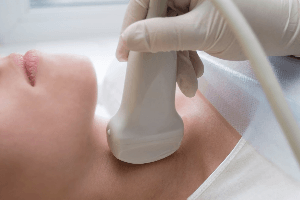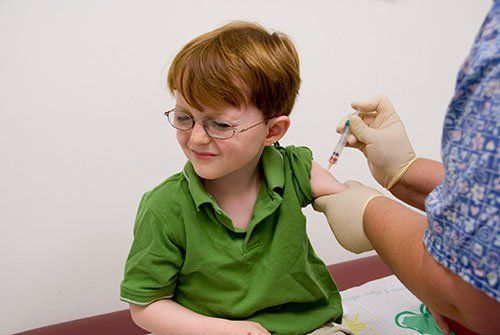WHAT'S CAUSING YOUR NOSEBLEED?
Admin • January 20, 2022

A nosebleed is never convenient. It can occur at any time, and it can turn into a serious concern if you are away from home when it happens. Trying to find a solution to your nosebleed problem may be difficult. However, if you pay attention to the symptoms, you may help your doctor diagnose the problem.
Your nosebleeds may be linked to any of these problems. If you experience nosebleeds on a regular basis, it is important that you bring these concerns to a medical professional. The issue could be more serious than you believe.
Dry Nasal Passage
Dry nasal passages are caused by a number of circumstances, ranging from central air conditioning to dusty air. Just like much of the rest of your skin, dryness can lead to cracking, discomfort and bleeding. Your nose is no different.
These types of nosebleeds are typically resolved with a humidifier and drinking lots of fluids. The goal is to prevent the nose passage from drying out. Steams and wet wipes can help prevent drying. Avoid becoming dehydrated.
Being Hit in the Nose
Any kind of blow to the nose may result in bleeding, whether it occurred during football, basketball, baseball or even when you weren't playing a sport. The bleeding is a result of blood vessels becoming damaged in the nose, which causes them to rupture and bleed.
If the nose continues to bleed or the amount of blood is significant, you'll need to seek medical treatment. This is especially the case because such an injury could lead to a broken nose that requires urgent medical care.
Colds and Allergies
Much of the time, swelling and mucus build-up in the nose causes nosebleeds. When you try to blow the mucus out of your nose, you may burst a blood vessel, or you may simply dry out your nasal passages, which we've already addressed as contributing to a bloody nose.
The best cure for these nosebleeds is to prevent colds and allergies. If you already have a cold or an allergic reaction, it is also smart to blow your nose less often. You may also be able to take prescribed medications to prevent severe allergic reactions. It is wise to seek medical treatment if you have bloody noses caused by allergies, especially if the bleeding lasts 20 minutes or longer.
Low Platelet Count
If you have a low platelet count, it means that your blood has a difficult time clotting when you bleed. When the blood doesn't clot properly, you may find yourself losing a lot of blood even if you are facing a simple cut or scrape. This makes a nosebleed serious.
Conditions related to low platelet count may lead to nosebleeds. These conditions include types of cancer. If you have one of these conditions and experience frequent nosebleeds, you need to discuss the issue with your doctor to find preventative measures - and if you get a nosebleed that won't quit, see a doctor right away.
Deviated Septum
Deviated septums are linked to a number of issues, including difficult breathing and bleeding. A deviated septum occurs when the septum, or middle wall, of the nose is off-center. This makes the nose asymmetrical. This problem is often caused by injury but is not always - it may be hereditary.
Many patients undergo surgery to treat a deviated septum, particularly if there is a lot of pain. This is something you can discuss with your doctor.
Hampstead Medical Center PC may be able to help you with medical conditions related to nosebleeds. There are many serious issues associated with nosebleeds, so discussing symptoms may find the root of the problem.

The IUD, or intrauterine device, is one of the most effective methods of birth control available. Unlike birth-control pills, you do not need to remember daily to administer medication, and the device itself lasts longer than shots and is easier to use than rings. Many women find all of these benefits desirable for a birth-control method. There are two general types of IUDs available to women. The first type is the copper IUD, and the other is hormonal. Which one is right for your personal birth-control needs?

Although the risk of cardiovascular disease increases as you get older, many people who die suddenly of a heart attack didn't previously know they had heart disease. That's why identifying risk factors for heart attack and stroke is so critical to cardiovascular health. Fortunately, with regular exams and the many types of screening tests available, doctors can detect early signs of heart disease.

Even if you've never had cause to doubt your thyroid function, if you're a female who has recently given birth, you may be at risk for thyroid issues. An estimated 12 percent of Americans deal with thyroid trouble at some point during their adult lives, and women are significantly more likely than men to develop a thyroid-related ailment. Unfortunately for new mothers, many of the most common signs of an underactive thyroid (like weight gain, mood swings, fatigue, and irritability) are also quite common for those dealing with a newborn's frequent night wakings and the realities of a post-partum body. Read on to learn more about some common (and not-so-common) signs that you could be dealing with a pregnancy-induced thyroid problem as well as some treatment options that can be safely administered or performed while you're breastfeeding. What Can Cause Thyroid Problems During Pregnancy? As with many other hormonal disorders, there are often more questions than answers when it comes to thyroid function. However, researchers have pinpointed a few factors and health conditions that can raise the risk of a woman’s developing a thyroid issue during or immediately after pregnancy. For example, while only around 7 percent of women are at a general risk of developing postpartum thyroiditis, this risk increases to 25 percent for women who have Type 1 diabetes or who dealt with elevated antithyroid antibodies during pregnancy. Women whose anti-peroxidase (anti-TPO) antibodies were elevated during pregnancy may have a 1 in 2 chance of developing postpartum thyroiditis, and those who have dealt with thyroid issues in the past (or during previous pregnancies) also deal with a significantly increased risk. In other cases, thyroid problems may have no cause that can easily be pinpointed; the rush of various hormones during pregnancy and the strain they can put on various systems, including the endocrine system, can create a sort of "perfect storm" in which thyroid problems may thrive. What Are Some Signs You're Dealing With Post-Pregnancy Thyroid Issues? Thyroid problems can take a number of forms, including hypothyroidism (an underactive thyroid), hyperthyroidism (an overactive thyroid), Graves' disease (an autoimmune condition that causes goiter), or Hashimoto's disease (an autoimmune condition in which the body's immune system attacks healthy thyroid cells, eventually stopping all thyroid function). The signs and symptoms for each thyroid disorder are unique and often at opposite sides of the spectrum. For example, hypothyroid patients often report being cold, having dry skin, sleeping more than normal, or gaining weight without trying while hyperthyroid patients sweat profusely, suffer from insomnia, and can lose a significant amount of weight in a brief period. Postpartum thyroiditis often manifests as either an underactive or overactive thyroid, which usually normalizes itself in a few months. Symptoms lasting longer than that or that appear to be getting worse may necessitate medical intervention. What Treatment Options for an Underactive Thyroid Are Best for New Mothers? Whether you suspect you have postpartum thyroiditis or have been formally diagnosed, you may be worried about how your potential treatment options could impact your ability to breastfeed and what effect (if any) they might have on your child. Fortunately, there are a number of effective options from which to choose. If your postpartum thyroiditis is deemed autoimmune in origin, there is some evidence that taking selenium supplements could help normalize your thyroid function without requiring you to take hormonal medication (which might pass into your milk supply). If your symptoms aren't severe and don't impact your daily life, you may instead opt for watchful waiting, maintaining contact with your doctor and reporting any worsening symptoms but avoiding medication or other treatment for the time being. However, if your doctor recommends supplemental thyroid hormone, this usually means some intervention is necessary to prevent permanent damage to your thyroid and the organs and systems that depend on a steady dose of hormones. Make an appointment with Hampstead Medical Center PC to get started taking care of your health.

Family physicians and medical office staff help you in facilities that are patient- and doctor-friendly. Everything your doctor needs to examine, treat, and explain your condition is within reach–from hand washing sinks to your medical history. When you have a family member healing at home, it's wise to create the same sort of convenient space on a smaller scale. If you or a family member has been diagnosed with a serious condition or been hospitalized, you or the family member may eventually be sent home to recover. If the recovery will be a long-term process, there are ways to make your living quarters easier on both the patient and the caregivers. Here are a few tips to ready your residence for a recovering patient.






